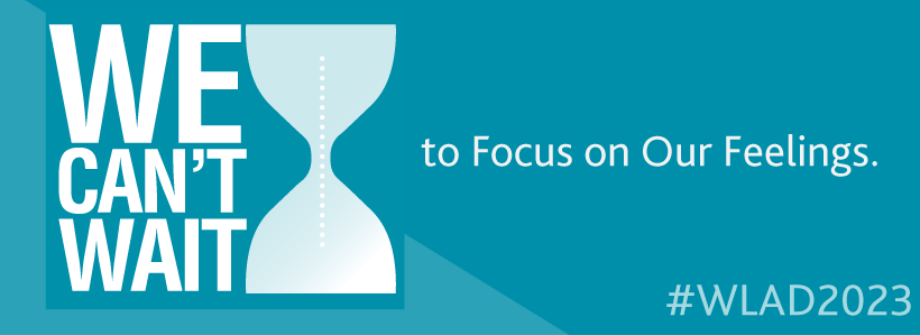
Lymphoma Coalition's whitepaper on the Psychological Impact of Lymphoma
By Kathryn Perry, Lymphoma Coalition Head of Communications & Information
World Lymphoma Awareness Day (WLAD) is just around the corner, on 15 September! Lymphoma Coalition is excited to share a brand-new video featuring the global network of lymphoma patients and patient organisations who came together to declare, "We Can't Wait to Focus on Our Feelings." To view the video and learn more about the various WLAD materials available, visit: World Lymphoma Awareness Day – Lymphoma Coalition
Lymphoma Coalition has just released a new whitepaper which is now publicly available and outlines the Psychological Impact of Lymphoma by examining the learnings from the 2020 and 2022 Global Patient Survey on Lymphomas and CLL.
The research that was done through the GPS in 2020 and 2022 is important as it confirms that the 12-month prevalence rate for any psychological disorder is significantly higher in patients with cancer compared with the general population and despite the statistics this area is understudied. The whitepaper is a valuable tool for clinicians, as it underscores how research like this can help identify patients most likely to develop issues and require support, as well as help determine the best interventions to help patients cope.
It is critical that clinicians leverage existing tools and evidence-based guidelines in their clinical practice to better support patients in managing the long-term impact of lymphoma-related distress on their wellbeing. The research within the whitepaper helps refocus these issues, showcasing the need for doctors to play more of a role in recognising distress and ensuring patients are supported with appropriate psychological care. Healthcare providers in clinical settings can also leverage the various patient organisations and other community-based external resources for support as they can also play an instrumental role in supporting patients.
To read the whitepaper on the Psychological Impact of Lymphoma you can download either the A4 or letter size file here: Psychosocial Effects – Lymphoma Coalition
The Value of the Insights from the GPS and the Whitepaper from a Physician’s Point of View
By Anna Ossami Saidy, EBMT Lymphoma Working Party Secretary
The whitepaper on the Psychological Impact of Lymphoma is an important tool to increase clinicians’ awareness of the patients’ struggles apart from the pure physical symptoms.
We have to handle and balance a whole lot of aspects throughout a patient’s course: starting with making the right diagnosis by bringing together results of clinical, histological, laboratory and imaging examination, then choosing the right treatment for a patient considering not only the nature of the patient’s disease but also individual patient aspects like age, fitness, organ function, medical history and finally recognizing and handling complications. But despite all these requirements and their complexity we may not forget about the emotional health of our patients which is challenged a whole lot during the disease course and is of fundamental importance when it comes to the question that opens every anamnesis: “How are you?”.
If we want to hear an honest answer to that question we need to establish a doctor-patient relationship where there is room for the questions of mental well-being. On this fundament we can support our patients by acknowledging their personal worries and distress, refer them to appropriate support and in some cases even adjust the individual treatment plan or schedule to improve the patient’s ability to cope with the situation.
A stable psyche and good resilience are of high relevance not only for the holistic well-being of our patients but also as is can improve therapy adherence and lead to various positive effects on somatic symptoms like nausea and pain.
The whitepaper contains valuable analyses that help to better understand our patients and moreover, gives some helpful guidance by presenting specific measures for providing support in case of mental distress.